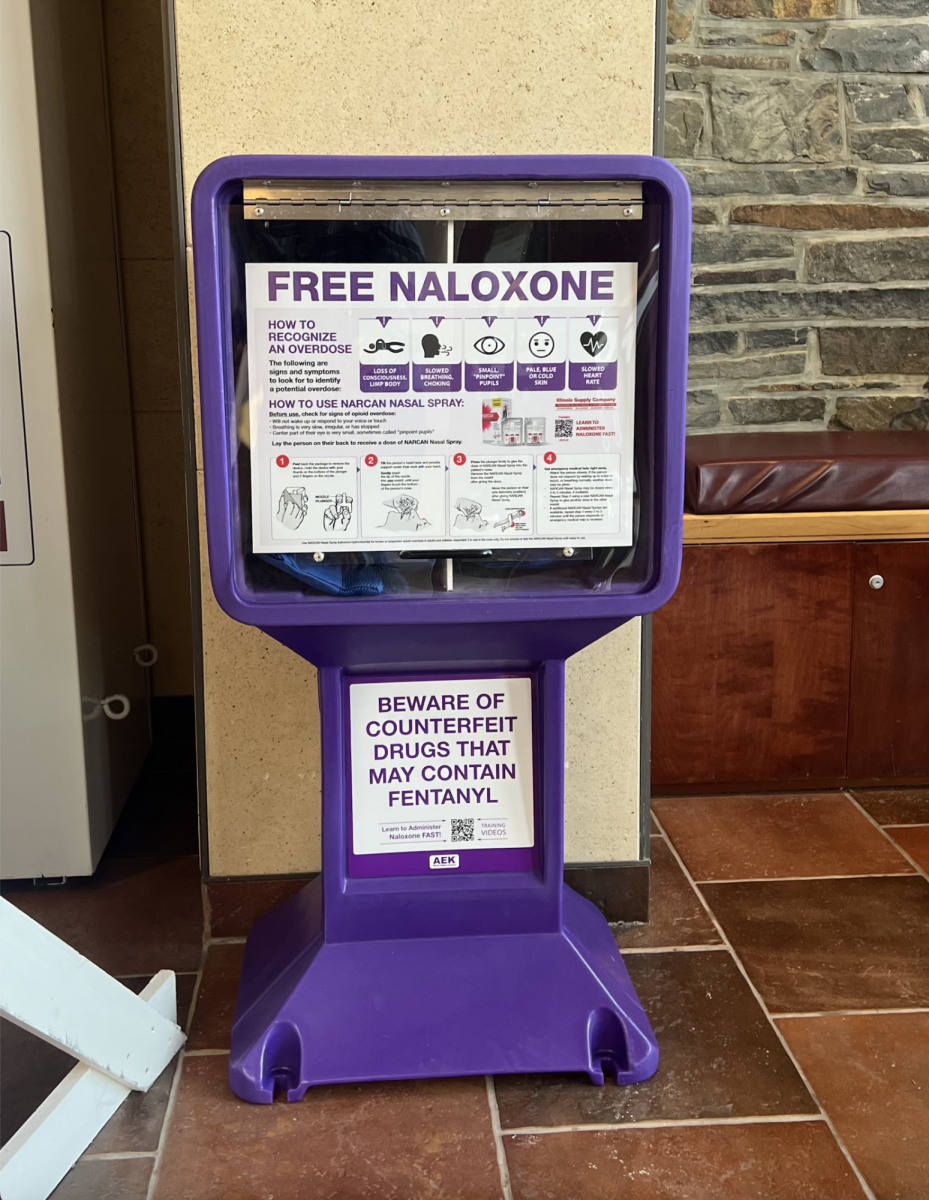Beginning this fall, Colgate University’s Council on Alcohol and Other Drugs (CAD) instituted a new initiative to increase access to Narcan, the nasal spray version of naloxone that can reverse opioid overdoses. Educational training sessions for students and faculty are also being made available in which attendees can learn about the dangers of fentanyl and opioid exposure as well as how to administer Narcan. CAD is also distributing free naloxone kits and creating naloxone access stations around campus.
Like the Shaw Wellness Institute, in which the CAD is housed, the initiative’s main goals are education and prevention. Rachel Evans, director of wellness promotion at Shaw Wellness, described the initiative’s main goals as education and prevention, further explaining why education around Narcan is so necessary.
“It’s important for students to be aware of what Narcan is, when it should be used, why it’s available and, overall, why it’s something that we’re doing here at Colgate,” Evans said.
The initiative came about as more institutions began responding to a rise in opioid and fentanyl exposure. Alcohol and Drug Services Counselor and Coordinator Stephen Elfenbein noted the importance of the initiative within the broader national context.
“We want students to have the information needed to make the best decisions possible, and it’s very important that we at Colgate are reflective on what is going on in the world around us,” Elfenbein said. “We really, as an institution, felt like it was important for students to be given all of the interventions possible for their safety and education.”
A 2022 bill signed by New York State Governor Kathy Hochul requires Narcan access at state college campuses, including SUNY and CUNY schools. As the legislation inspired many private universities to follow suit, Evans described how it was helpful to connect with other schools in creating the initiative.
“Before we moved forward with a lot of this, we started off with researching what other schools are actually doing on this, and it’s amazing to see so much of the great work that’s already been done,” Evans said. “It’s helpful to be able to connect with our colleagues from other institutions.”
Students will be given a kit during the naloxone training sessions. If a student does not attend one, they can still get a kit at one of the five access stations around campus. The stations are located at Shaw Wellness Center, Case-Geyer Library, Frank Dining Hall, the O’Connor Campus Center (Coop) and Trudy Fitness Center. Two of these locations — Case-Geyer Library and Shaw Wellness Center — will be accessible 24/7. Evans explained the process of choosing these specific locations.
“We wanted to make sure that we have some spaces in upper campus and some spaces in lower campus,” Evans said. “Keeping all those kinds of things in mind, we wanted to make sure that there was at least one 24/7 accessible space.”
Elfenbein explained that CAD is in a unique position to provide resources across campus because of how their network is structured.
“With CAD’s membership stretching from the dean of college to the dean of the faculty, we feel like we have representation from every building on campus, so to speak,” Elfenbein said. “It gives us insight from every single department.”
Operating in tandem with the new Narcan initiatives, Elfenbein and Evans highlighted the University’s Good Samaritan policy, which gives students medical amnesty. While the initiative aims to educate students on Narcan, Elfenbein and Evans hope that students will call Campus Safety for help in the event of a pressing emergency.
“We really believe that the students care about themselves and they care about each other […]. I think with the Narcan training and the Narcan kits being available, we will really soon see real evidence of that being true,” Elfenbein said.
Junior Lauren Levin is a Shaw Wellness ambassador and is trained to teach others how to administer Narcan. She further emphasized the importance of the initiative.
“This initiative is really exciting and important because it empowers students to respond effectively in overdose situations, potentially saving lives,” Levin said. “Equipping students with Narcan and the knowledge to use it will allow for a safer campus and community.”
Students and faculty are able to sign up for Narcan training by filling out a form on the University’s website. The next trainings will be held at the Coop on Oct. 15 and Nov. 14.













